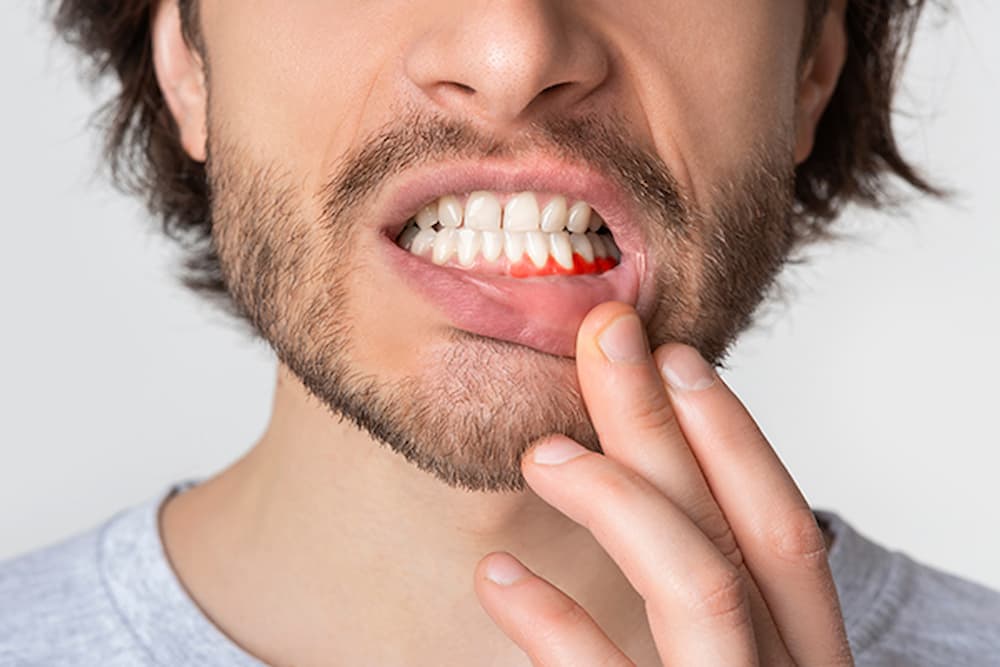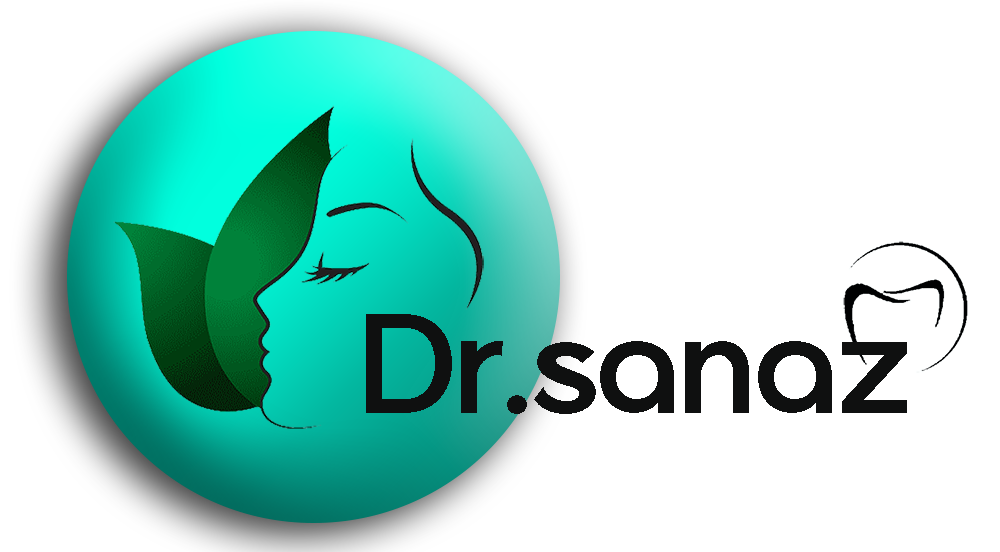

Checking: What Are The Disadvantages Of Deep Cleaning Teeth?
The content of this article is approved by “drhealthandbeauty” experts.
Note: This article is only to guide and increase your knowledge. Before taking any action, you can consult “drhealthandbeauty” doctors or your doctor for treatment.
Deep cleaning, technically known as scaling and root planing (SRP), is a standard dental method with the goal of removing plaque and tartar from teeth and root surfaces to prevent and treat gum disease.
Although you can scale your teeth at home, and that’s why you should know “How To Scale Your Teeth At Home?” But actually scaling is a dental procedure that has many benefits, from maintaining cavities to improving gum health, deep cleaning is very effective in improving gum health and preventing progression to more severe forms of periodontal disease.
Be aware that, like any medical procedure, dental deep cleaning has certain disadvantages and potential risks. This article is an overview of the benefits of deep cleaning, including possible side effects, limitations, and factors to consider when undergoing this treatment.
Table of Contents

Deep tooth scaling is full of defects!!!
Dental scaling or professional teeth cleaning is an essential part of maintaining oral and dental health. This work is done by a perio (gum specialist) or general dentist. Cleaning your teeth will get rid of unwanted food and bacterial deposits in your mouth. Scaling includes two types: superficial and deep. However, in some cases, some complications occur after cleaning the teeth or scaling the teeth.
The worst disadvantages
Increased sensitivity
One of the common disadvantages of deep teeth cleaning is the increased sensitivity of teeth, especially to hot or cold temperatures. A person’s teeth may have been covered with plaque for a long time, which may lead to gingivitis.
After removing the plaque layer, the teeth are revealed to air and food. This is one of the most common complications. This tooth sensitivity usually lasts a few days to a few weeks. This sensitivity may be due to the removal of plaque and tartar deposits, which exposes the sensitive underlying layer of dentin.
Patients may experience discomfort or sensitivity when eating cold or hot foods and drinks following deep cleaning procedures. All the solutions to prevent this complication after tooth scaling are given in the article “What To Do With Tooth Sensitivity“.
The duration and intensity of this sensitivity are based on the health of the person’s gums. People who regularly take care of their teeth may experience less sensitivity compared to people who haven’t visited the dentist in years. This is a temporary side effect.
Gum irritation
During the deep cleaning process, dental instruments are used to delete plaque and tartar from below the gum line. You may feel pain after a deep cleaning of the gums. It lasts about a week to 10 days. Bacteria, plaque, and calculus sometimes build up under the gums. In the process of removing these subgingival deposits, the gums may become sore.
This mechanical manipulation of the gums can cause temporary irritation or inflammation of the gums. Some patients may experience redness, swelling, or sensitivity in the treated areas immediately after the procedure.
However, you should note that the causes of toothache can be numerous. And if your pain is caused by dental plaque, it should usually go away within a few days with the healing of the gums. So you may ask yourself the question “How Do I Know What Kind Of Toothache I Have?“. In fact, the pain caused by gum scaling is a temporary side effect. If necessary, the person may need to take painkillers..
Bleeding gums
As another disadvantage rarely do patients experience some bleeding after deep scaling. Usually, you may see redness in your saliva after brushing your teeth. Bleeding occurs after deep cleaning in people who have not received dental care for a long time and have periodontitis.
This bleeding may occur due to the disruption of the gum tissue and the removal of the bacterial biofilm from the gum pocket.
While light bleeding is normal and usually resolves on its own, persistent or excessive bleeding may indicate underlying gum disorders like Gingivitis or other oral health issues that require further evaluation by a dental professional.
Related: “How To Cure Swollen Gums / Home Remedies“

Discomfort during the operation
Deep cleaning is a non-surgical procedure that uses specialized dental tools, such as ultrasonic scalers and hand scalers, to remove plaque and tartar deposits.
Some patients may feel discomfort or sensitivity during the procedure, especially if they have extensive plaque or if the gum tissue is inflamed. Therefore, these patients consider it as a disadvantage for deep cleaning of the teeth.
In the article “Is Deep Cleaning Teeth Painful?” We have explained well what the pain is like during the deep cleaning process of the teeth at each stage.
Dental providers may use local anesthesia or numbing agents to reduce discomfort and ensure a more comfortable experience for the patient.
Risk of infection
While deep cleaning is intended to reduce the risk of gum disease and related complications, there is a potential risk of infection related to the procedure. Infection occurs when your body has a weak immune system.
Also, if you have deplorable oral hygiene, that is, due to having susceptible gums, you may experience bleeding during the treatment and for about a week after the treatment when brushing and flossing.
The use of dental instruments in the oral cavity can introduce bacteria into the bloodstream and increase the risk of systemic infection; however, with appropriate infection control protocols, including sterilization of dental instruments and adherence to hygiene principles, the risk of infection is minimal. If you ignore this story. Avoid brushing your teeth and using mouthwash; there is a possibility of infection and tooth infection swelling as a disadvantage of deep cleaning teeth.
Damage to tooth enamel
The most crucial disadvantage of tooth scaling is damage to tooth enamel. All steps of dental scaling, from diagnosing the treatment to choosing the treatment method and implementing it, must be carried out by a specialist and dentist. Otherwise, the enamel of your teeth may be seriously damaged.
Root surface sensitivity
During root planing, the dentist smoothes the surface of the tooth roots to remove bacterial toxins and reattach the gum tissue. While this process is necessary to treat gum disease and prevent future plaque build-up, it can also lead to root surface sensitivity.
Patients may experience increased sensitivity along exposed tooth roots, especially to touch or pressure. In most cases, this side effect will be removed after a few days of scaling. But if your dentist does not have enough expertise and damages your gums, this can be a problem. However, this sensitivity is usually temporary and decreases as the gums heal and the root surfaces reconnect to the surrounding tissues.
Cost considerations
Another potential disadvantage of deep cleaning is the cost involved, especially for patients who do not have dental insurance coverage. While deep cleaning is considered a standard preventive or curative dental procedure, the price can vary depending on factors like the extent of treatment required, the complexity of the case, and the geographic location of the dental office.
It is not possible to declare an exact cost for the cost of crime because many factors play a role in estimating its final price. Among these factors are the conditions of dental caries, the expertise and salary of the dentist, the state of oral and dental health, the geographic area of the clinic, etc.
Patients should discuss the estimated cost of treatment with their dental provider and explore available payment options or financing plans to make treatment more affordable.
Limited access
Deep cleaning may be challenging to perform effectively in areas with limited access, such as deep gum pockets or areas where teeth are crowded. In such cases, dental providers may have difficulty accessing and thoroughly cleaning these hard-to-reach areas, increasing the risk of plaque build-up and residual calculus.
Patients with complex dental anatomy or advanced gum disease may require additional interventions, such as surgical periodontal therapy, to address these challenges and achieve optimal treatment outcomes.
The need for continuous maintenance
While deep cleaning is an effective remedy for removing plaque and tartar and improving gum health, it is not a one-time solution. Compliance with the principles of oral and dental hygiene, including daily brushing, flossing, and regular dental examinations, is necessary to prevent the recurrence of gum disease and maintain the results of deep cleaning methods.
Be sure to include scaling once a year in your health plan. Of course, depending on the type of saliva people have, scaling can be needed sooner or much later.
Remember to minimize the formation of plaque with the correct brushing method.
Related: “What Is The Cause Of Tooth Decay Despite Brushing?“

Frequently asked questions
Does scaling cause loose teeth?
Many people believe that after this treatment, there is a possibility that their teeth will become weak and loose. But you should know that this belief is entirely wrong. Dental scaling, in turn, is not the reason for this.
When plaque and tartar created around the teeth are removed, people will feel this sensation due to the creation of a space between the teeth.
Of course, it should be noted that sometimes the tooth is already loose due to several reasons, and the person only notices the occurrence of this problem after scaling.
Does scaling cause gum recession?
The fact that scaling causes gum recession is entirely wrong
You should know that the mass and plaque formed on the teeth is one of the causes of receding gums. In fact, when the calculus formed on the tooth, which gradually destroys the gums, is cleaned, the weakened gums are exposed to the patient, and he feels that the calculus has caused the loss of the gums. . It is that all these events have already happened but remained hidden from the patient’s view
Related: “Treatment For Gum Recession: What Are Your Options?“
Can you use anti-scaling toothpaste instead of scaling?
No, plaque cannot be removed with a toothbrush and toothpaste, and for this purpose, the help of a dentist should be sought.
In addition, the toothpastes that are introduced as anti-scaling contain large amounts of abrasive materials and only clean the color and stains deposited on the teeth, which are called stains, and their regular use is not recommended.
Due to the presence of many abrasive substances, these toothpastes create excellent scratches on the level of the teeth and provide the basis for the accumulation and adhesion of microbial plaque.
Of course, it goes without saying that toothpaste has many benefits and if it has the right ingredients, it can even prevent tooth decay. The article “Cavity Conundrum? Best Toothpaste To Reverse Cavities” will be a good guide to choosing the best toothpaste to brush your teeth.

Conclusion
If we don’t brush our teeth for a short time every day, a sticky layer is deposited on the teeth, especially in the gum line, which is called plaque.
If dental plaque is not eliminated from the teeth and gums with a toothbrush and dental floss in each day, after a while, it will turn into white, yellow, or dark-colored calcareous deposits that cannot be removed with a toothbrush. These calcareous deposits are called dental calculus in dental terms.
Masses that are formed above the gums on the teeth are visible; they are more visible around the collar of the teeth, but masses that are formed in the areas below the gums are much more dangerous.
By removing dental plaque and cleaning these plaques formed on the teeth, we prevent the process of gum destruction.
While deep cleaning is a valuable tool in the prevention and cure of gum disease, it is essential to be aware of the potential disadvantages associated with this procedure. By understanding these factors and working closely with a dental professional, patients can make informed decisions about their oral health care and take preventative measures to minimize any side effects associated with deep cleaning.

